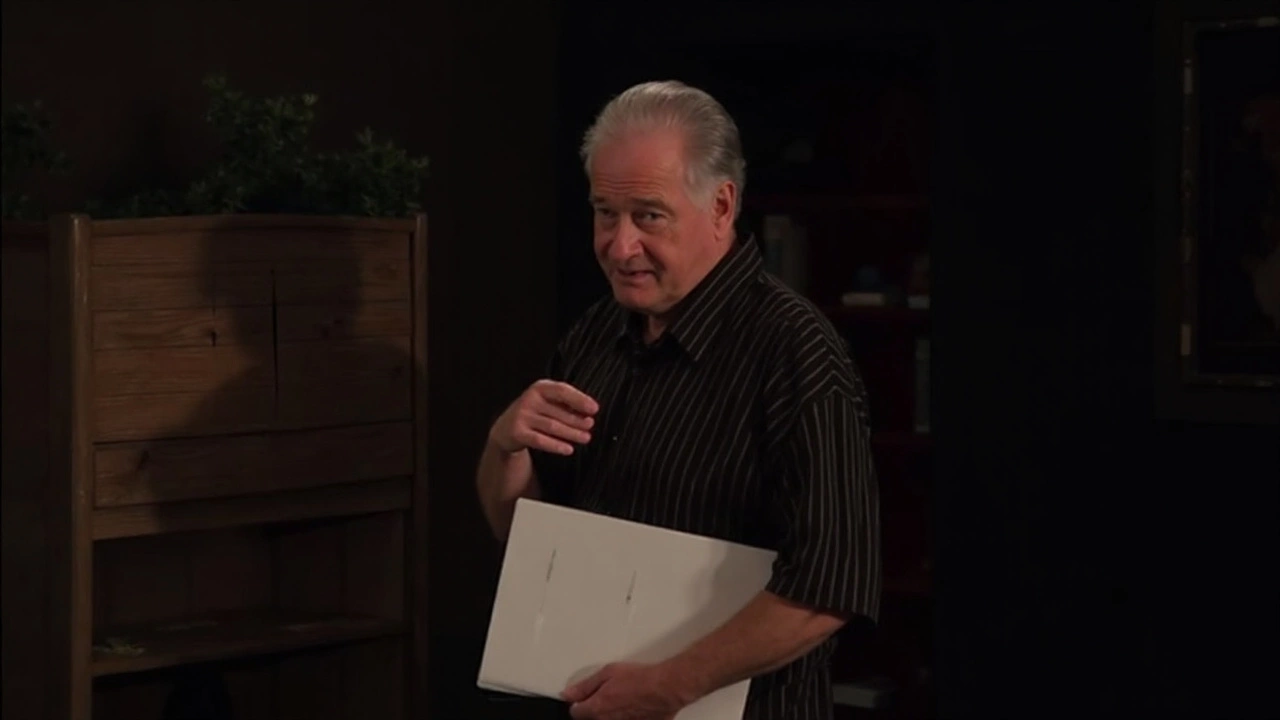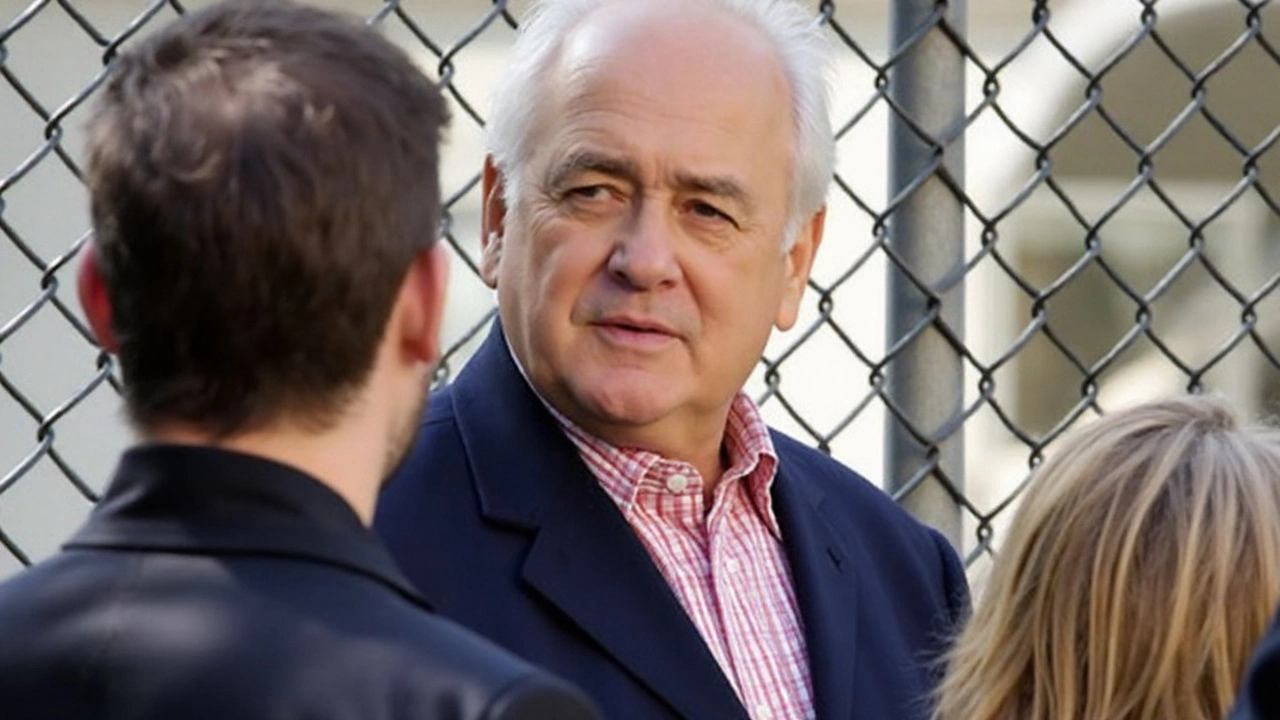A life in the wings, then a turn in the spotlight
He didn’t face a TV camera until his 60s—and then he became one of prestige TV’s most recognizable character actors. Jerry Adler, best known as Herman Hesh Rabkin on The Sopranos, died Saturday at his home in New York City. He was 96. Riverside Memorial Chapel confirmed his passing.
Born on February 4, 1929, in Brooklyn, Adler grew up in a Yiddish-speaking, observant Jewish household rooted in one of American theater’s most influential dynasties. His great-uncle was Jacob Pavlovich Adler, a giant of Yiddish theater. Acting coach Stella Adler and actor-director Luther Adler were his cousins. The family tree is a map of 20th-century stage history, and it helped shape a career that moved across eras—from the golden age of Broadway to cable television’s revolution.
Adler’s father, Philip Adler, was a theater manager for decades, serving the Group Theatre—a collective that incubated modern American acting—and working with heavyweight producers Herman Levin and Alexander H. Cohen. That put Jerry in rehearsal rooms long before he ever memorized lines. He learned stagecraft from the ground up: cues, timing, egos, chaos, and the quiet discipline that makes a production work.
By the time Broadway was hitting its mid-century stride, Adler had already built a reputation backstage. He worked as a producer, director, and production stage manager on more than 50 productions across several decades. Stage managing the original Broadway production of My Fair Lady became one of his standout credits. That show was a machine—elaborate sets, musical precision, stars moving in sync—and the stage manager is the person who calls every light, sound, and fly cue, holds the line when tempers flare, and keeps the whole thing from wobbling. If you’ve ever seen that show glide, you’ve seen the invisible hand of his craft.
Adler’s early life tracked with that discipline. At Samuel J. Tilden High School in Brooklyn, he led the Dramatic Club as president, signaling an early appetite for theater in any form, not just the spotlight. He later attended Syracuse University, where the nuts and bolts of production—and the humility of backstage work—deepened his understanding of performance. It was a practical education that would eventually make his on-camera work feel effortless.
Then came the pivot. In a move that would terrify most people, Adler flipped his career in his 60s and stepped into acting full-time. That shift wasn’t a lark; it was a synthesis. He brought a stage manager’s eye to scripts: where the beats land, how a scene breathes, when silence does the talking. Casting directors saw a presence that read as authentic, grounded, and lived-in. On screen, he looked like someone who had been around, because he had been—just offstage, calling the shots.
The Sopranos made him famous. As Hesh Rabkin, a music-business fixer and longtime family associate of Tony Soprano, Adler played the consigliere who was never loudest in the room but often the one worth hearing. Hesh was a link to an older, streetwise order—sharp, blunt, and unromantic. His scenes cut through the fog of bravado and violence with moral clarity and, at times, discomfort. Storylines touching on royalties, money, and loyalty let Adler lean into the character’s practicality and steel. He gave the show a counterweight: advice without flattery, friendship without illusions.
That same mix of bite and warmth showed up across dozens of TV roles. On The Good Wife and The Good Fight, Adler’s Howard Lyman was the partner out of step with modern office norms—funny, stubborn, occasionally exasperating, but never a caricature. He made Lyman human, the kind of colleague you roll your eyes at until he does something decent and you remember he helped build the place.
He was a steady presence in comedies and dramas that couldn’t be more different in tone. On Mad About You, he played building maintenance man Mr. Wicker, dry and unflappable amid the Buchmans’ neuroses. On Rescue Me, as Fire Chief Sidney Feinberg, he stepped into authority with ease—someone who knows how to deliver bad news without making it worse. In Raising Dad, he was the father to Bob Saget’s character, quick with warmth and a jab. Transparent cast him as Moshe Pfefferman, where he navigated family secrets with the same directness he brought to Hesh. Broad City popped him in as Saul Horowitz, a playful nod to the city’s elders who have seen a few things. And in Living with Yourself, opposite Paul Rudd, he added a sly, seasoned edge as Hillston.
Film directors leaned on that same credibility. Adler turned up in Manhattan Murder Mystery with a wry, neighborly realism; in The Public Eye with a noirish steadiness; in In Her Shoes and Prime with warmth that didn’t tip into sentimentality; and in A Most Violent Year with the gravity that drama like that demands. None of these were showy roles. He didn’t need showy. He made small parts feel necessary.
The connective tissue through all of it was craft. Years of cue calling and crisis management train your instincts. They teach you when to press and when to hang back. Adler understood camera angles because he had listened to designers argue about them; he understood pacing because he had lived inside the metronome of live performance. The result was a screen presence that never felt fussy. He hit his mark, said the line, and let the scene do the rest.
Adler’s roots matter here. The Adler family brought a seriousness to acting that shaped American performance for a century. Stella Adler’s pedagogy prized imagination and social context; Jacob P. Adler’s Yiddish theater carried epic stakes into immigrant life. Jerry absorbed that lineage but didn’t perform it. He took the traditions—discipline, respect for text, the idea that work is work—and made them practical. Even at the height of his TV success, he sounded like someone who would rather talk about the rehearsal than the premiere.
He also bridged generations in the business. He started when stage managers typed out nightly reports and headsets were a luxury. He ended when prestige dramas shot on digital rigs with sixth-episode twists engineered for binge culture. Through that shift, he kept the same core—to serve the story and help the people around him do their best work. It’s not glamorous, but it’s the heartbeat of any long career.
His late-career surge also says something about television. As cable and streaming broadened the kinds of characters that shows needed, there was more room for actors who didn’t fit the shiny mold. A man in his 60s with a Brooklyn cadence and a stare that could flatten a committee meeting suddenly had a lot to do. Adler became one of those reliable faces who make a scene better just by walking into it.
He collected respect along the way. The University of Connecticut awarded him an Honorary Doctorate of Fine Arts, a nod not only to the roles viewers knew but to the decades of invisible labor that built his foundation. That honor reads like a quiet throughline: he took every job seriously, even the ones without applause.
Colleagues often describe the best stage managers as diplomats with stopwatches. Adler brought that temperament to acting—calm under pressure, allergic to fuss, ready with a dry line when the air got too heavy. Directors trust that energy, and audiences feel it even if they can’t name it. When Hesh told Tony an uncomfortable truth, you believed him. When Howard Lyman bungled a modern HR training, you recognized a certain kind of man. Adler didn’t chase charm; he earned credibility.
His background as a child of observant, Yiddish-speaking parents also gave him a specific cultural lens that informed some of his most memorable work. Hesh was not just an associate; he was a Jewish businessman navigating an Italian-American mafia world, a subtle cultural and moral tension that Adler played without leaning on stereotype. He kept the character sharp but human, the way people in New York actually are—complicated, pragmatic, and stubbornly themselves.
Adler’s career offers a kind of blueprint for reinvention. He didn’t “break in” with a sudden discovery story. He learned, worked, adapted, and then moved into a new lane when most people would be planning retirement. That move wasn’t flashy, but it required guts. The payoff was three decades of roles that stuck with people—neighbors, bosses, fathers, fixers—each one shaded by experience rather than ego.
It also reminds you how much of entertainment history is built by people who aren’t in the spotlight—until they are. The backstage veteran who keeps a classic musical humming might also be the actor who gives a crime saga its conscience. Those jobs aren’t as different as they look. Both demand timing, authority, and an ear for truth.
Adler leaves behind a catalog that will keep popping up in reruns and streaming menus for years. An episode of The Sopranos where Hesh’s advice lands like a punch. A Good Wife hour that lets Howard Lyman be both ridiculous and oddly wise. A sitcom beat that doesn’t overreach. The work endures because it was built to last.

Credits that defined a late-blooming star
Adler’s career spanned theater, television, and film. A snapshot of the roles many viewers will remember:
- The Sopranos: Herman Hesh Rabkin, a longtime associate and music-business confidant to Tony Soprano, present across the show’s run with scenes that cut through bluster.
- The Good Wife and The Good Fight: Howard Lyman, an old-school partner whose tone-deaf moments masked stubborn loyalty and institutional memory.
- Mad About You: Mr. Wicker, the ever-dry building maintenance man, a sitcom foil who never needed to raise his voice.
- Rescue Me: Fire Chief Sidney Feinberg, authority carried lightly—command without theatrics.
- Raising Dad: Sam Stewart, playing opposite Bob Saget as a father with a sharp edge and a soft center.
- Transparent: Moshe Pfefferman, navigating family history with blunt honesty.
- Broad City: Saul Horowitz, a cameo that nodded to New York’s elder statesmen with a wink.
- Living with Yourself: Hillston, adding gravitas to a surreal comedy premise.
- Films: Manhattan Murder Mystery, The Public Eye, In Her Shoes, Prime, A Most Violent Year—supporting turns that grounded the stories.
His path—from Samuel J. Tilden High School’s Dramatic Club to Syracuse University, from cue-calling on My Fair Lady to scene-stealing on cable dramas—formed a rare, full-circle career. It bridged the rehearsal room and the writers’ room, the raked stage and the single-camera set. Few artists get to see both sides so clearly, and fewer still leave a mark on each.
Jerry Adler was part of the architecture of American entertainment: the structures backstage and the characters on screen. His death closes a chapter that started when Broadway was still run on paper and carbon copies and ended in a world of streaming queues and algorithmic recommendations. The throughline was the same: do the work, respect the craft, serve the story.
